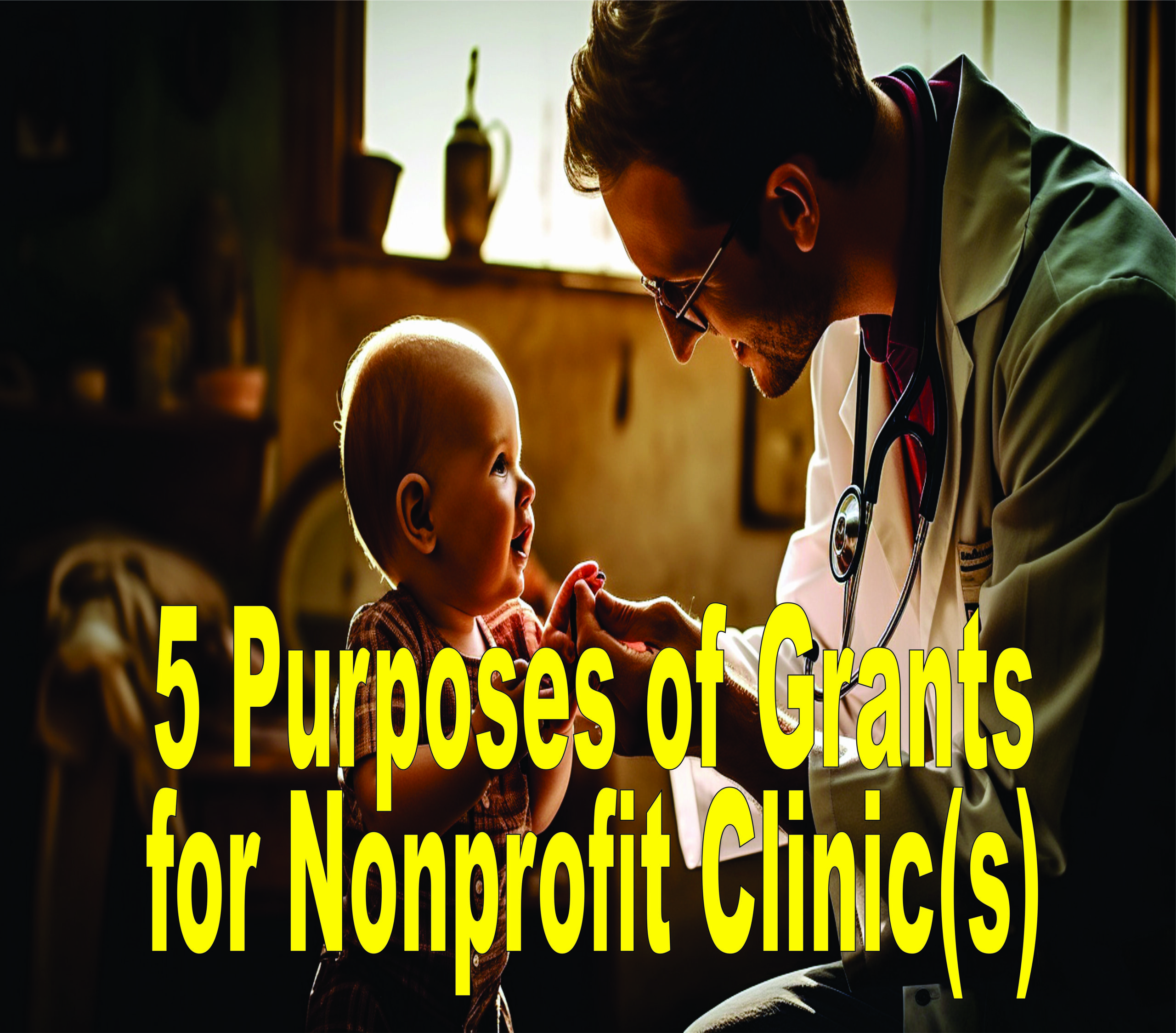5 Purposes of Grants for Nonprofit Clinic(s)

Last Updated on May 7, 2024 by Kathy
What is Nonprofit Clinic?
In the USA, non-profit clinic(s) continue serving underinsured and uninsured patients. A nonprofit clinic provides a way to give back to the community. These clinics are mission-driven and staffed by volunteer physicians, nurses, and health care providers.
Non-profit medical clinics are designed to provide primary care to those with limited or no access to health care, such as the homeless and Medicaid beneficiaries.
These clinics provide medical services, education, and preventative care for people in times of medical crisis. Vision, basic dental, and behavioral services are all available to patients.
Challenges of Running Nonprofit Clinic
Cost
It is expensive, time-consuming and labour-intensive to establish a nonprofit corporation. The process involves many legal formalities, such as preparing articles and bylaws and applying for tax exemption. In short, this takes time, money and resources.
Record-keeping
In short, onprofit clinics must continue to submit detailed records and annual filings within the prescribed deadlines.
Oversight and Accountability
A clinic, as a non-profit corporation, is subject to both federal and state laws. A board of Directors manages nonprofits in some states.
Public Scrutiny
Nonprofits serve the public interest. The public can inspect the federal and state filings and become public records. So, to learn more about salaries and expenditures, the public can request copies of state and federal filings.
Purposes of Grants for Nonprofit Clinic
Nonprofit Medical Clinic is a community of health care providers. It was established and operated with the goal of providing primary healthcare to patients and populations that otherwise could not afford it and who are socioeconomically and geographically underserved.
1. Scope of Services
Non-profit medical clinics offer a variety of health care services for eligible patients. Moreover, ome clinics offer essential mental, behavioral, and dental health services, depending on their resources.
2. Primary Care
Primary care is for minor injuries and illnesses. These services include a general physical exam, minor medical problems, and testing for chronic diseases such as diabetes, high blood pressure, and others. These services may vary from one clinic to the next.
Some clinics offer prescription assistance programs, pharmacy service and gynaecological care. Hence, if the clinic cannot diagnose a problem, they can refer you to someone who has the right resources and devices.
3. Mental and Behavioral Health
Non-profit clinics offer a variety of mental and behavioral healthcare services. They include screening to determine the need for mental health, diagnosis and treatment, as well as medication and case management.
4. Dental Clinics
Many clinics have the ability to provide dental services. They provide routine exams and assessments as well as x-rays and tooth fillings.
You can also find clinics equipped with all the necessary facilities. They are also able to provide sealant, fluoride treatments, and root canals. These clinics are not able to provide services such as dentures, implants, braces, tooth extractions, or tooth whitening.
5. Education
Non-profit medical clinics must be active in the community. In fact, ducation is an important part of good health. Experts offer workshops to discuss preventive and treatment options for various health and medical issues.
Benefits of Grants for Nonprofit Clinic
Liability Protection
The liability of the corporate office and the governing body is protected. So, directors, organisers, officers, and employees are not personally liable for any debts. However, ndividuals may be held responsible if they act outside of their duties.
Tax-Exempt Status
Nonprofit clinics are not automatically exempt from tax. Yet, it must meet all federal and state requirements and follow fiscal management.
Moreover, ealth centres are considered nonprofit organisations if they meet primary care, screening, and preventive service requirements. The Internal Revenue Services involves creating a nonprofit at the state level and applying to federal tax-exempt status.
Increased Fundraising Potential for Nonprofit Clinic
The chances of receiving funding and support are increased when a nonprofit is obtained. It is easy to be qualified under federal law.
There Should Always Support Nonprofit Clinic
Non-profit clinics require grants to achieve a higher quality of care and better quality of life. Patients who are middle-class or lower-income cannot afford additional medication and treatments. So, on-profit medical clinics serve patients that cannot afford medical care.







